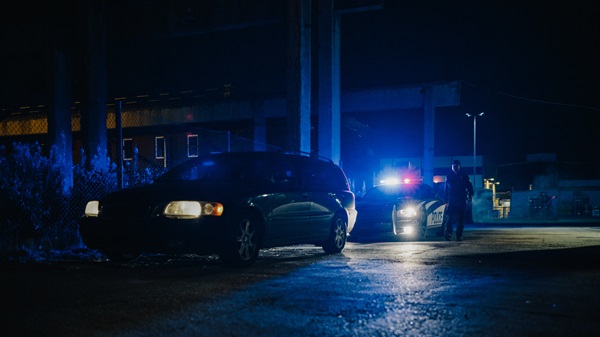
After a DWI arrest in Texas, one of the most confusing issues for drivers is whether the police can actually force a blood test. In many cases, officers do have legal tools to obtain a blood sample. However, there are important limits, and your constitutional rights still matter.
Whether you're facing a DWI charge or you want to understand your rights in the event of a DWI arrest, here's what you need to know.
Do I have to take a blood test in Texas?
Texas has an “implied consent” law that applies to anyone who operates a motor vehicle on public roads. By driving in Texas, you're legally considered to have consented to a chemical test (breath or blood) if you are lawfully arrested for DWI. This doesn't mean, however, that you must automatically submit to every test an officer requests. You can still refuse, but that refusal carries consequences.
When an officer reads you the statutory warnings, you're told that refusing a breath or blood test can lead to an automatic driver’s license suspension, even if you are never convicted of DWI. For many drivers, that puts them in a difficult position. Cooperate and potentially provide strong evidence to the State, or refuse and face an administrative license revocation.
- Refusing a test can trigger a 180‑day license suspension for a first refusal.
- A prior refusal suspension or certain intoxication-related convictions in the previous 10 years can increase the suspension up to 2 years.
- You typically have only 15 days to request a hearing to challenge the suspension.
When can Texas police force a blood test?
In many routine DWI arrests, police can't simply hold you down and take your blood without any legal process. Instead, they must either obtain your consent or obtain a judge's approval for a blood search warrant based on probable cause. In Texas, officers often use electronic or on‑call magistrates to secure warrants quickly, sometimes within minutes of a refusal.
Texas law lists circumstances where an officer may require a specimen request (often called "mandatory blood draw" situations), such as crashes involving death or serious bodily injury, a child passenger under 15, or qualifying prior convictions. These situations often lead officers to seek a blood search warrant quickly.
But in practice, police still generally need a valid search warrant unless a recognized exception applies.
When can't the police force a blood test?
Police can't simply force a blood draw in every DWI case. If there are no qualifying aggravating factors, no emergency circumstances, and no warrant, a compelled blood draw may violate your constitutional rights. Likewise, even if a warrant exists, it must be supported by adequate probable cause and executed properly. A defective or overly vague warrant doesn't always hold up in court.
Texas law also limits who is allowed to draw blood in a DWI case. Only certain medical professionals and qualified personnel may perform the draw. It must be done in a sanitary, medically appropriate setting. When unqualified personnel draw blood, or when procedures appear unsafe or sloppy, that can become another avenue to challenge the evidence.
What if a driver was unconscious and taken to the hospital?
Supreme Court precedent recognizes that exigent circumstances may allow a warrantless blood draw in some unconscious-driver situations, but that is not automatic, and the issue can still be challenged based on whether a warrant could have been obtained in time.
Officers may rely on exigent-circumstances arguments and may also seek a warrant for hospital blood records or a new draw. Even in hospital settings, the State must still respect your constitutional rights. Issues such as who drew the blood, how it was stored, whether proper procedures were followed, and how the sample was transferred to law enforcement can all become critical in your defense.
What defense do I have if I'm arrested for DWI?
Even when a blood draw is performed, the State still has to prove that the test is accurate, reliable, and legally obtained. Blood test evidence is often treated as the centerpiece of a Texas DWI prosecution, but it is far from bulletproof. A skilled Texas DWI defense attorney will look at both the legal and scientific sides of the test.
On the legal side, your lawyer can examine whether officers had valid probable cause, whether the warrant application contained any misleading statements, whether mandatory draw rules were properly applied, and whether your Fourth Amendment rights were respected. On the scientific side, the focus turns to how the blood was collected, preserved, transported, and analyzed in the lab.
Common issues that may be used to challenge blood evidence include:
- Contamination or improper preservation of the blood sample.
- Gaps or errors in the chain of custody documentation.
- Lab errors, poor calibration, or incorrect interpretation of test results.
If the court suppresses the blood test or the jury doubts its reliability, the prosecution’s case can weaken significantly. In many DWI prosecutions, the blood test is the primary evidence of intoxication. When that evidence is excluded or discredited, the State may be forced to reduce the charge, offer a more favorable plea, or even dismiss the case.
What should I do after a DWI arrest involving a blood test?
If you have been arrested for DWI in Texas and the police requested or forced a blood test, the most important step is to act quickly. You are facing both a criminal case and an administrative license issue, and both have strict deadlines.
Amanda Webb - DWI Lawyer can review the circumstances of your arrest, analyze the legality of any warrant or mandatory draw, and dissect the blood testing process for mistakes. To begin protecting your rights, contact us to book a consultation with a Texas DWI lawyer who knows the system and how to fight for your freedom and future.
"Amanda Webb and her staff did a fantastic job representing a family member. Her professionalism, attention to detail, and steadfast work for her clients were second to none. I'm grateful to have had her on our team!" - Craig W. ⭐⭐⭐⭐⭐




